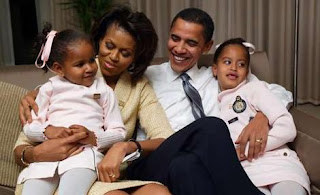
Are our behaviours the reflection mirror of our parents'? Does the causality only run one way (i.e. from parents to children)? Or can there be a reversed causality that runs from us to our parents?
There are now two interesting studies on how having daughters can significantly affect parents' voting behaviours (one by Ebonya Washington - recently published in the American Economic Review) and the other was by me and Andrew Oswald of the University of Warwick.
More generally, our papers found that having more daughters make you more leftwing in your political stance.
Why is that?
The gist is this. First, men earn more than women, on average. In other words, there's pay discrimination by gender in the world. On the other hand, women by nature would prefer more public goods (i.e. streetlights after dark, better healthcare system, etc.) than men do.
Imagine there are only two political parties in the world.
- One is a rightwing party ("Because I'm conservative, I'll give you less of public goods but in return I'll also ask for less taxes from you").
- The other is a leftwing party ("Because I'm liberal, pay me lots of taxes and in return I'll provide you with lots of public goods").
However, by having daughter the man is likely to take his daughter's best interests into account ("I don't want my daughters to grow up in an unfair world!") and as a result shift his political stance from right to left.
I doubt that this case will apply generally in countries where popularism rather than right versus left dominates (like in Thailand, for example)...

No comments:
Post a Comment